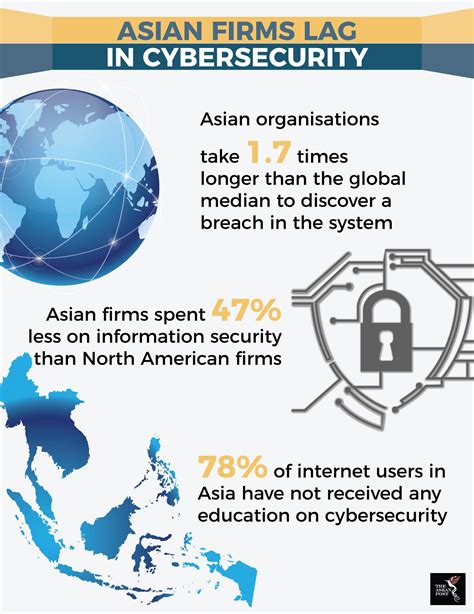Cyber threats have become a significant concern for Southeast Asian countries, with the region's rapid digitalization and increasing reliance on technology creating new vulnerabilities. As the threat landscape continues to evolve, it is essential for individuals, organizations, and governments to stay informed and take proactive measures to protect themselves.

In recent years, Southeast Asia has experienced a significant surge in cyber attacks, with hackers targeting various sectors, including finance, healthcare, and government. These attacks have resulted in substantial financial losses, compromised sensitive information, and disrupted critical infrastructure. The region's growing concern over cyber threats is further exacerbated by the increasing use of mobile devices, social media, and online services, which create new entry points for hackers.
Growing Cyber Threats in Southeast Asia
The cybersecurity landscape in Southeast Asia is complex and constantly evolving. Some of the most significant cyber threats facing the region include:
Ransomware Attacks
Ransomware attacks have become a major concern in Southeast Asia, with hackers using malware to encrypt sensitive data and demand payment in exchange for the decryption key. These attacks have targeted various sectors, including healthcare, finance, and government, resulting in significant financial losses and disruptions to critical services.

Phishing and Social Engineering
Phishing and social engineering attacks are also prevalent in Southeast Asia, with hackers using tactics such as email spoofing, fake websites, and social media scams to trick individuals into revealing sensitive information or installing malware.
Denial of Service (DoS) and Distributed Denial of Service (DDoS) Attacks
Denial of Service (DoS) and Distributed Denial of Service (DDoS) attacks have become increasingly common in Southeast Asia, with hackers using botnets to flood targeted systems with traffic, resulting in disruptions to critical services and significant financial losses.

Cybersecurity Measures in Southeast Asia
To combat the growing cyber threats in Southeast Asia, governments, organizations, and individuals must take proactive measures to protect themselves. Some essential cybersecurity measures include:
Implementing Strong Password Policies
Implementing strong password policies is crucial in preventing unauthorized access to sensitive information. This includes using unique and complex passwords, enabling two-factor authentication, and regularly updating passwords.
Keeping Software Up-to-Date
Keeping software up-to-date is essential in preventing cyber attacks. This includes regularly updating operating systems, applications, and plugins to ensure that known vulnerabilities are patched.

Regional Cooperation and Collaboration
Regional cooperation and collaboration are crucial in combating cyber threats in Southeast Asia. This includes sharing threat intelligence, coordinating incident response efforts, and developing common cybersecurity standards.

Conclusion
Cyber threats are a significant concern for Southeast Asia, with the region's rapid digitalization and increasing reliance on technology creating new vulnerabilities. To combat these threats, it is essential for individuals, organizations, and governments to stay informed and take proactive measures to protect themselves. This includes implementing strong password policies, keeping software up-to-date, and engaging in regional cooperation and collaboration.






What are the most common cyber threats in Southeast Asia?
+The most common cyber threats in Southeast Asia include ransomware attacks, phishing and social engineering, and Denial of Service (DoS) and Distributed Denial of Service (DDoS) attacks.
How can individuals protect themselves from cyber threats?
+Individuals can protect themselves from cyber threats by implementing strong password policies, keeping software up-to-date, and being cautious when clicking on links or downloading attachments from unknown sources.
What is the importance of regional cooperation in combating cyber threats?
+Regional cooperation is crucial in combating cyber threats as it enables countries to share threat intelligence, coordinate incident response efforts, and develop common cybersecurity standards.
